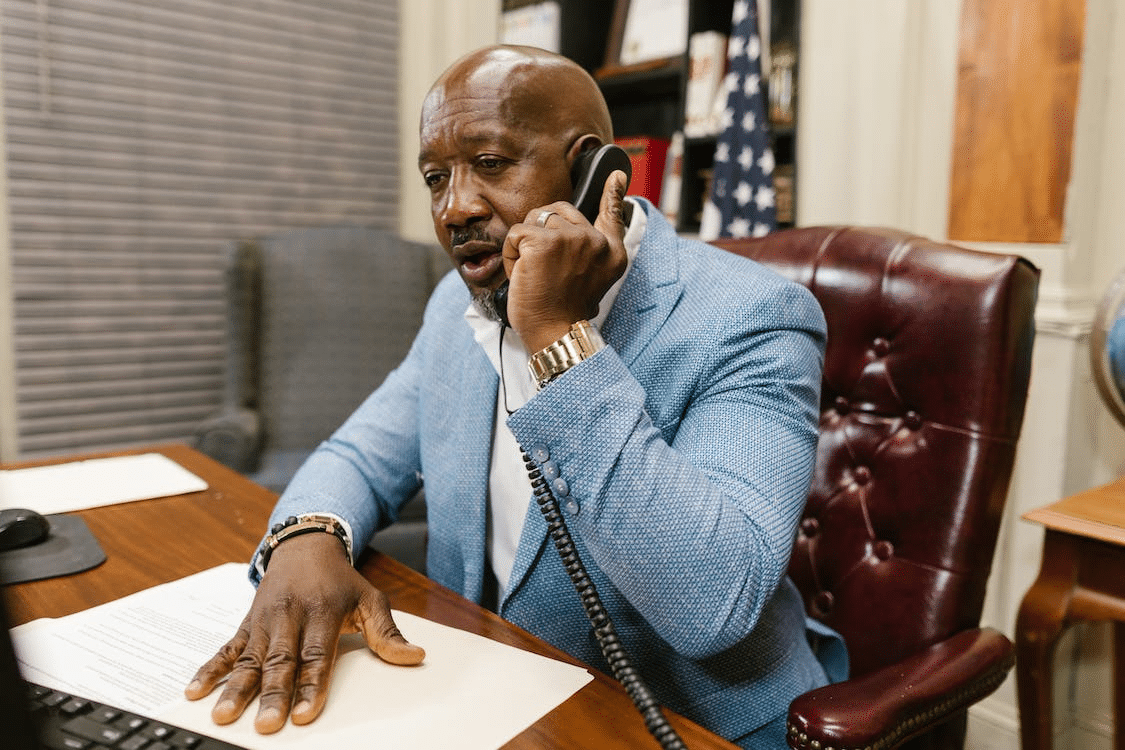Disability Discrimination in Florida for Employers
Florida Attorneys
Serving You and The State of Florida

If you own a business in Florida, you probably realize that there are many laws that you need to comply with. These have to do with fair hiring and firing processes as well as behavior that goes on in the workplace on a daily basis. Discrimination of various kinds is not allowed in the state of Florida, and one of the kinds of discrimination that cannot take place is disability discrimination
If you have been sued for disability discrimination, you might not be sure what you need to do next. There are a variety of reasons why you will want to be sure that you have a skilled legal team working on your side if you have been sued for this kind of discrimination. These kinds of cases are complex, and the employment lawyers at Lopez Law Group can help you to get the favorable outcome from the case that you have been looking for.
Working with an experienced lawyer is key when it comes to disability discrimination cases in the state of Florida, and Lopez Law has years of experience working on these kinds of cases.
What Are The Things That an Employer Cannot Discriminate Against?
Florida ADA laws are guided by the Florida Civil Rights Act. This set of laws follows the example and guidelines of federal discrimination laws and protects employees from being discriminated against based on race, color, religion, sex, national origin, age, handicap, or marital status. This applies to hiring, firing, and workplace conditions as well.
Employers also cannot discriminate against employees for reasons related to a past history of a disability. You cannot hire or fire someone based on their disabled status, and you cannot ask them to disclose to you the nature of their disability. The employee can choose to disclose this information, but they are never required to provide any information about their disability to employers, even if they are asked about these conditions directly.
Those in need of accommodation have a federal and state-supported right to be able to access it as needed in the workplace. Disabled employees are also allowed to have the same FMLA coverage for up to 12 weeks off per year related to protected health conditions. The same rights that are offered to other employees need to be given to those who require accommodation or have a disability.
The Florida Civil Rights Act was put in place in 1992. This act covers workplaces that employ fifteen or more people. These can be private or public employees. County and city ordinances will likely apply even if the Florida Civil Rights Act does not apply. This means that employers with fewer than fifteen employees are not exempt from these requirements.

What Are Some Examples of Disability Discrimination in the Workplace?
Disability discrimination in the workplace can take many forms. All of these various kinds of discrimination are not allowed and can lead to a lawsuit against any Florida employer who allows these conditions to exist in their business. If you have been accused of these actions and the accusations are false, it can still require a lot of research and preparation of your case to be able to defend against this kind of accusation. In most cases, it will be hard to argue that you did not take these actions since worker discrimination cases tend to place a lot of benefit of the doubt on the employee.
Here are some examples of disability discrimination in the workplace:
- Inability of employees to access the workplace with ramps or other accommodative solutions
- Negative or offensive remarks about the person’s disability in the workplace
- Being passed over during hiring or fired or laid off due to disability alone
- Lack of accommodative bathrooms on the premises of the workplace
- Jokes about disabilities in the workplace
- Lack of accommodative assistance in the workplace for desk, chair, or other specific needs
- Unwelcome attention on employees due to their disability
- Discussion of the disability with other employees or during meetings and other kinds of group interactions
- Denial of leave for medical treatment of any kind
- Letting an employee go when they have completed their FMLA period and have come back to work
These are common examples of workplace discrimination against people with disabilities, but this is not an exhaustive list of things that can lead to a lawsuit. You will want to be sure that you do not accidentally deny the rights of anyone who works for you based on their accommodative needs or their health status.
Having a skilled legal team look over all of your company documentation and policies related to workers with disabilities can be key to making sure that you are not accidentally infringing on anyone’s rights. The team at the Lopez Law Group is happy to provide this kind of legal support as needed to ensure that you are not going to end up entangled in a lawsuit due to a legal issue of this kind. While it might seem like the law is complex when it comes to these rights, there are simple ways to ensure that your company is in compliance with civil rights laws at all times.

Are All Medical Conditions Covered by EEOC Laws?
The EEOC (U.S. Equal Employment Opportunity Commission) enforces and protects the federal laws that make it illegal to discriminate in the workplace based on all of the protected conditions that are listed above. That does not mean, however, that all medical conditions fall under the umbrella of these laws. There are many health-related conditions that do not get protection from the EEOC, and both employers and employees need to be aware of the difference between each kind of condition.
Things like broken bones or illnesses like colds and flus are not protected under EEOC law. Some mental health conditions are protected, but things like compulsive gambling are not, and neither are mental or physical conditions related to old age. Pregnancy is also not protected, and things like a lack of education or minor injuries are also not considered to be disabilities.
These delineations are key when it comes to helping your business to defend itself against false accusations of disability discrimination. There are many people who believe that their unique situation should be protected under federal and Florida state law. However, this is not the case, and the lawsuit that is brought against a business might be dismissed if the situation that the employee feels was discriminatory is not related to any of the protected rights of workers in the state of Florida.
There can be some gray areas in these protected conditions, such as in the case of stress or depression, that might be linked with on-the-job conditions. Documentation and medical information about each unique case will be required in order for the lawsuit to stand in situations like this. The burden of proof in these cases can be quite cumbersome, and in many cases, the employee is not able to definitively prove that their work-related stress is the fault of the company who hired them.
Are Mental Illnesses Protected under ADA Law?
Some mental illnesses are protected under these laws, and it is worth noting that these conditions are covered under the umbrella of the EEOC:
- Bipolar Disorder
- Schizophrenia
- Major depression
- Anxiety disorders
- Personality disorders
These conditions are considered part of the EEOC because they affect people’s ability to think, learn, concentrate, sleep, and communicate. Having a skilled lawyer working on these kinds of cases will make a big impact on the outcome. Being able to access the right testimony and the right expert witness information is essential in these kinds of discrimination cases.
These kinds of conditions are further protected under ADA laws, granting those who suffer from them additional rights to privacy. This means that those who have been diagnosed with these conditions are not required to disclose this information to their employer or anyone else who asks them to do so. If they should decide to disclose this information to any employer, the employer cannot then fire the employee or take action against them for having kept this information private.
Additionally, if another employee discovers information about the mental health of a coworker, they cannot discuss this condition with other workers or with management. This can lead to a disability discrimination claim even if the business itself is not in support of the actions of the employee in question. Workers with protected mental health conditions are allowed to have reasonable accommodation for their disability, and they are allowed to discuss this condition or not with others in the business as they see fit.
This is one of the instances where it can be very hard to defend a business from a disability discrimination claim. The privacy aspect of this part of the ADA’s laws is not flexible, and there are few interpretations that leave wiggle room to defend a business against these kinds of accusations. You also cannot ask anyone who is applying for jobs with your business if they suffer from these conditions without facing a potential lawsuit. These kinds of conditions do not occupy a gray area in the laws in the way that depression or anxiety do.
Do Workers Have to Apply for ADA Protection?
Workers are not required to apply for any kind of protection under ADA laws. If an employee meets any of the requirements to be considered disabled under these laws, they are automatically entitled to their protection. The EEOC states that employers who are covered by the ADA include:
- Private employers
- State and local governments
- Employment agencies
- Labor organizations
- Labor-management committees
In short, if an employee is qualified to do a job and they have sought employment, they are covered by the ADA if they have any of the eligible disabilities these laws protect. You cannot ask them to disclose these disabilities to you as their employer, but you can take action to make accommodations for the needs of employees who do disclose to you the nature of their disability. It is important to remember that these kinds of conditions are protected by privacy laws, and make sure that you are not asking questions that you are not allowed to ask when you hire employees or when you are working to help meet their accommodative needs.
The fact that privacy protects many of these conditions via ADA laws means that employers in the state of Florida are always wise to have hiring documentation and accommodation policies reviewed by an experienced legal team. There are many ways that businesses can infringe upon the rights of their employees with disabilities through misinterpretation of these laws. Allowing a legal expert to help your business to craft your policies about disclosure and accommodation can make all the difference when it comes to preventing lawsuits related to disability discrimination.

Do I Need to Hire an Attorney to Help With Disability Discrimination Claims?
The complex nature of disability discrimination cases means that it is critical to have a skilled legal team working on your case. It can be hard to gather the burden of proof that is necessary to overcome these kinds of accusations, even if they are false. These laws are meant to protect workers, and this means that it can be hard to prove that your business did not do anything wrong.
Being sure that your legal team knows their way around this kind of case is essential. You will want to work with an experienced legal group like Lopez Law. The team at Lopez Law will work hard to collect all of the evidence and testimony that is needed to prove that your business did not do anything wrong. While employees tend to be highly sympathetic, if they cannot prove that your business took a harmful or discriminatory action against them, the case can be dismissed.
If your case goes to the settlement phase, the team at the Lopez Law Group will work hard to present all of the facts correctly to prove that you did not discriminate against the employee in question. Your lawyer will work hard to make sure that you get the most favorable settlement deal possible and that you are not forced to admit to wrongdoing that you should not have been accused of. These kinds of cases take almost as much work as preparing for a legal case that heads to court. It can be easy to miss essential steps in the research and case preparation process if you do not have an experienced lawyer working on your case.
If you and the employee who is suing you cannot come to an amicable settlement agreement, the team at Lopez Law Group can represent your business in court. Your team of lawyers will work hard to make sure that the case is correctly prepared to present all of the essential facts to the judge. While you cannot impact the judgment in these kinds of cases through negotiation, you can make sure that your lawyers have presented all of the details necessary to show that the employee in question was not harmed by your business.
Practice Areas
- Employers
- Commissions and Bonus Law
- Discrimination Disputes
- Age Discrimination
- Disability Discrimination
- Pregnancy Discrimination
- Race Discrimination
- Religion Discrimination
- Sex and Gender Discrimination
- Family Medical Leave Act (FMLA) Claims
- Federal FMLA Law
- Florida FMLA Law
- Independent Contractor Law
- Minimum Wage Disputes
- Misclassification as Exempt
- Non-Compete Agreement
- Overtime Pay Calculations
- Severance Contract Drafting
- Sexual Harassment
- Unpaid Wages Dispute
- Whistleblower Law
- Workers’ Compensation
- Workplace Bullying
- Employees
- Commissions and Bonus Law
- Discrimination Disputes
- Disability Discrimination
- Age Discrimination or ADEA Claims
- Pregnancy Discrimination
- Race Discrimination
- Religious Discrimination
- Sexual Orientation Discrimination
- EEOC Mediation
- Equal Pay Law
- Equal Pay Disputes
- Family Medical Leave Act (FMLA) Claims
- Florida FMLA Claims
- General Federal FMLA Claims
- Hostile Work Environment
- Minimum Wage Law
- Misclassification as Exempt
- Non-Compete Agreement
- Non-Compete Agreement Review
- Retaliation in the Workplace
- Overtime Pay Calculations Law
- Severance Contract Review
- Severance Package
- Sexual Harassment
- Unemployment Compensation Claims Lawyer Near Me
- Unpaid or Overtime Wages Dispute
- Whistleblower Law
- Worker’s Comp
- Workplace Bullying
- Wrongful Termination
What Our Clients Say
A Godsend
Mr. Lopez was a Godsend and really helped me with my situation. Him and the entire firm were very diligent and helped speed the early stages of the process along due to a pressing situation. Throughout my experience working with the firm, they were always responsive and available any time I had a question or wanted to check on the state of affairs. Hopefully I won’t have to recommend Lopez Law Group to my friends or family, but if those unfortunate circumstances arise then there’s only one name I would trust. Thank you again for all your help!
Lopez Law Group Can See You Through Cases Like:
Don't See What You Need?
Lopez Law Group
700 7th Ave N, Suite A,
St. Petersburg, FL 33701
P: 727-933-0015
Business Hours
Mo, Tu, We, Th, Fr
Schedule a Call Back
Book a Consultation






















